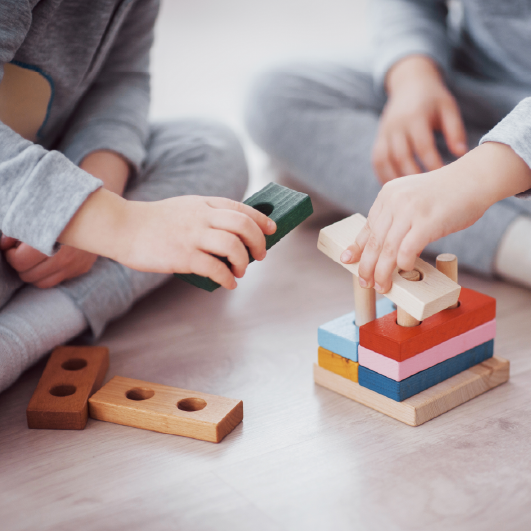What's next?
Interested?
Leave your details here.
HELPING CHILDREN BECOME GOOD LISTENERS

Listening skills refer to the ability to comprehend the meaning of words you hear and to be able to relate to them. When your child hears a story, it allows them to comprehend, recall, discuss and then possibly retell it in their own words. Therefore, children who listen well often grow up to be good communicators. It’s an integral skill to cultivate and sharpen from a young age which requires regular practice. Here are some tips for parents to guide their children towards becoming better listeners.
1.Demonstrate being a good listener.
Walk the talk – model being a good listener for your child. When they see that you are willing to listen to them, they would be more inclined to listen to you. You can start by giving them your undivided attention and not interrupting them at any point when your children explain something to you. Once they are done, you may reaffirm what you have heard by repeating what you understand and seek further clarification if you are unclear, which also shows that you respect them enough to listen to them. It is also important to look your child in the eye when communicating. Children reciprocate the respect they receive – children whose parents listen to them, grow up to model the same behaviour. Additionally, pay attention to the way you speak. You may not realise it, but your communication style may be similar to that of your parents. Examine what you say and how you say it to observe if there are any habits you’d like to break.
2. Say what you mean and mean what you say.
Think before you speak, say exactly what you mean and mean exactly what you say. If you tell your child, “You can have two more cookies,” give them two cookies, not three or four. Otherwise, your child will learn to tune you out once they realise you don’t keep to your word. If you tell your child it’s time to leave but end up taking another 20 minutes to get ready, your child would eventually develop “selective hearing” as they cannot determine what exactly you mean. Parents are also encouraged to use the word “please” and phrase your requests in a polite manner rather than making demands from your child. Like adults, children are more likely to exhibit positive response to a request in a positive tone as compared to when parents shout or bark out orders.
3. Give clear, simple directions
Give your children simple instructions which are age-appropriate while making eye contact. A 2-year-old could probably handle a two-step instruction like, “Get your backpack and meet me here”, whereas a 3- or 4-year-old may be able to handle more complex ones. As your child becomes a better listener, you may try adding in a few more steps in the instructions. This not only allows you to teach your child to listen well, but also to be independent. Additionally, children listen better when the conversation is clear and focused. Giving hints on what you want your child to do, being vague and giving incomplete requests will only confuse them. Always be clear in your communication to your children.
In conclusion, listening is a skill that must be cultivated and developed. For most individuals, it neither happens naturally nor quickly. Being a good listener means your child can pay attention to the message and review the important information. Listening skills are essential for children’s learning and development, allowing them to not only develop strong language abilities but also allows them to acquire subject knowledge easily with lesser stress and with better success.
Sources:

